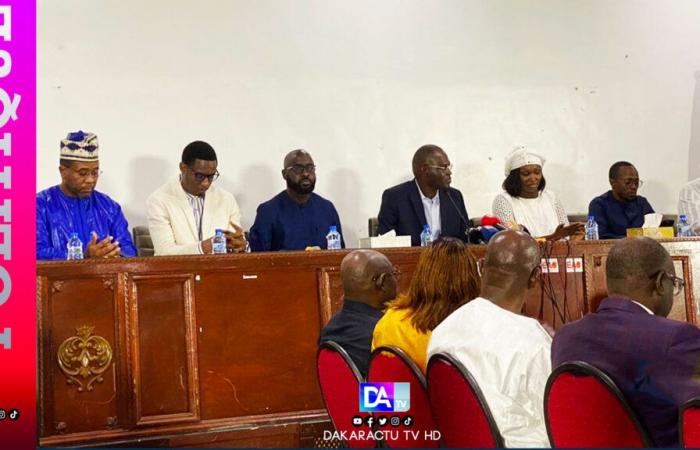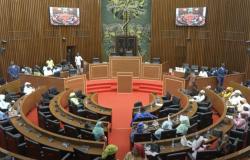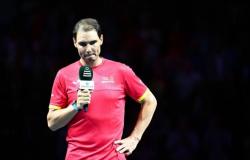The Pastef les patriotes party, founded in January 2014 by young executives from the Senegalese public administration, the private sector, liberal professions, teaching circles and businessmen led by Ousmane Sonko, was “again” talked about its political touch. The party which considers itself to be a legitimate aspiration of an entire people, crystallized by a generation aspiring to change, took hold (provisionally pending the publication of the results by the vote counting commission this Wednesday) during its legislative elections in this Sunday, of a large part of the voices which were expressed. 131 seats of deputies are currently projected, well ahead of the Takku Wallu coalition, led by former president Macky Sall with Karim Wade and which can total 16 seats in the 15th legislature and the Jam ak Njariñ coalition of Amadou Ba and that of Barthélemy which can total respectively (7 and 5 seats each).
A victory for the Pastef party which can be explained according to political analyst Maurice S. Dione, first of all, by a desire to bring the presidential majority into line with the parliamentary majority. Generally, when the Senegalese vote for an alternative, they provide the necessary means to the new government so that it can carry out its program. It is therefore a vote of continuity and a vote of consistency in relation to the presidential election of March 24.
Have the people thus given Pastef the means to concretely exercise power? visibly according to our political analyst, yes. Moreover, this is what was the essential element of this election, because otherwise the country could be in a situation of contradiction, where we would have a presidential majority, but which does not have the means, through a parliamentary majority, to implement its program.
In general, it is a scenario of continuity and consistency in the vote in Senegal. “On March 24, we had a sort of referendum against the continuity of President Macky Sall’s regime. With these legislative elections, we are in this preferential or plebiscite perspective, which is once again for the Senegalese people to move in the direction of this project which was proposed to them and in the sense of being able to allow Pastef to achieve its assignment. It is therefore a strength, it is a coherence, it is a continuity,” he concludes on this subject.
A paradigm shift in the rules of political competition
For the classic parties, it was noted that they attempted political recompositions, sometimes difficult to achieve, in an attempt to exist. Perhaps if this had not been the case, the disagreement might have been even greater within the opposition. But whatever the case, we have had political recompositions around the great liberal family, discussions between socialists. Then, a political recomposition of Benno Bokk Yakaar led by the new responsibility of Amadou Ba, the PIT, the Socialist Party, the AFP, all those who were in Benno Bokk Yakaar and who were released by President Macky Sall, took place. are given over to a recomposition. But what went wrong that the results were generally against them? Are the right strategies well refined? What about inter-coalitions? Apparently, the masses who voted for change on March 24 want to test the “Sonko-Diomaye” recipe by giving them the necessary powers to put into practice the policy which is projected around 2050.
But on the other hand, another recomposition with the PUR, Taxawu Senegal, Bougane with Guem Sa Bopp did not work either against the Pastef machine which is visibly on an ascending wave. Speaking of continuity and coherence for decades, Maurice Soudieck Dione, speaks at the same time of a referendum detour of the presidential election. Senegal is in the confirmation of this previous referendum reality of legislative elections which went in the direction of strengthening the political party led by Ousmane Sonko so that it can have a strong majority to carry out citizen reforms and develop its program .
There is a recomposition, a broader policy which is being carried out
The classic parties are practically sinking into disunity, because they no longer seem in tune with the political realities of the moment. There is a sort of paradigm shift in the rules of political competition.
It is also a major fact which will have to be analyzed by the Senegalese political commission, whatever it may be. But as our interlocutor points out, “politics is also a dynamic. We must not prejudge too quickly the end of this celebration. It will begin to recover, to rebuild itself and to adapt to this new political zone.” Now we will have to oppose and also see how PASTEF will manage power. This will be decisive in relation to the future of the opposition.
For political scientist Pathé Mbodj, there is no surprise. “We have started a new cycle since March 2024. But well before, in 2021. Those on the other side have not been able to manage. The Senegalese found in Sonko a crystallizing phenomenon. It’s social, new. However, the traditional parties will stay and fight against the Sonko phenomenon as was the case with Mamadou Dia, Senghor, Wade…We must fight to continue to exist…”, he concludes.






